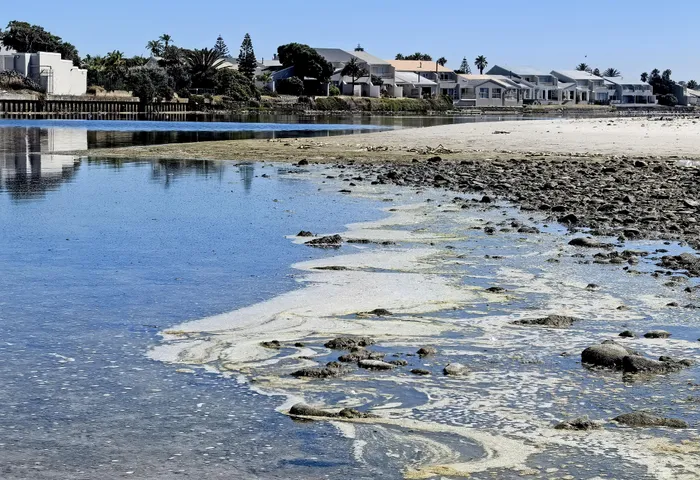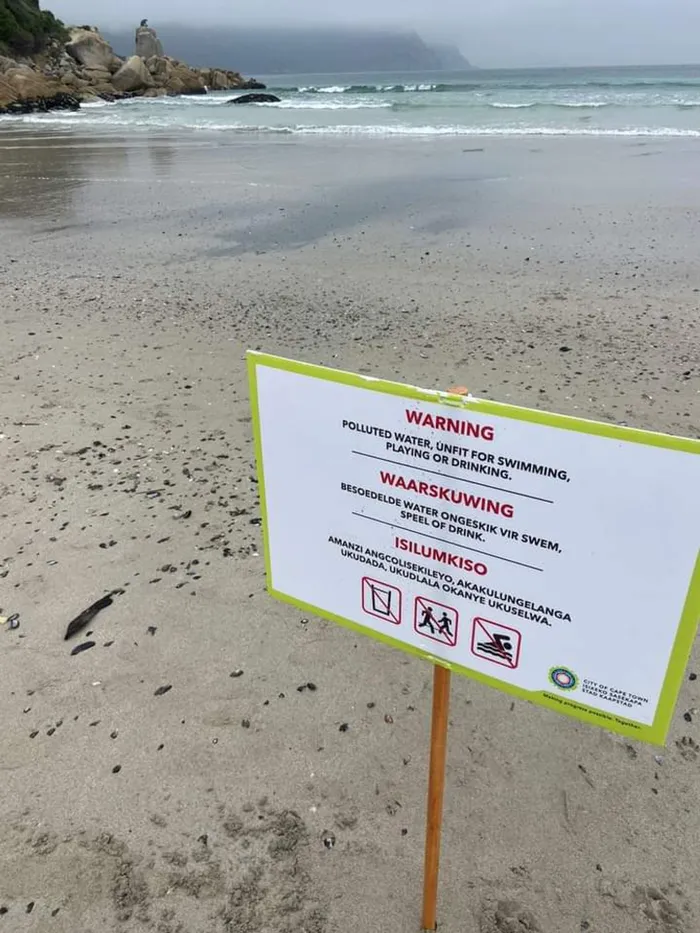Unveiling the truth: UCT study accuses City of Cape Town of water pollution cover-up

A new study has accused the City of political manipulation
Image: BHEKI RADEBE
The City of Cape Town has come under fire after a study by UCT accused them of misrepresenting scientific evidence around urban water pollution and failing to address the ongoing contamination of rivers, wetlands, and coastal areas.
The study, spanning over a decade of multidisciplinary research, points to political interference, denial, and selective use of data by municipal officials in managing the city’s wastewater crisis.
“Our goal has been to bring evidence of contaminants to the attention of officials responsible for a clean environment,” said lead author Professor Lesley Green, director of Environmental Humanities South at UCT.
The researchers documented 18 forms of science miscommunication, including the non-disclosure of test results and the use of selective data to reinforce political narratives. The City was also criticised for presenting point-in-time water samples as definitive, despite constantly shifting environmental conditions.
“Instead of engaging with evidence, City officials have appropriated the authority of science for brand and political reputation management. Science is only authoritative to the extent that it is open to counter-evidence,” Green said.
She further warned that the City continues to rely on outdated wastewater treatment models that discharge untreated or poorly treated sewage into natural ecosystems.
“Both the volume of waste from a large city, and that new chemical compounds that do not break down in the open environment, makes that approach unworkable,” she added.
While acknowledging the reversal of a 2021 bylaw that had prohibited independent water testing, Green said more accountability is needed.
But the City has hit back and said it has always been clear and transparent about the challenges faced with urban pollution and the interventions needed.
The City points to its long-standing efforts in publishing scientific data: “All of this information is available on the City’s website, from expert independent studies and findings, to the outcomes of our water quality sampling along our vast coastline that are updated on a weekly basis.”
It highlights that over the past decade, the City has published ten years of extensive monitoring, reporting, and analyses from independent experts, all available online including data from hundreds of water samples from around 18 stations at each marine outfall.

The City has refuted claims saying they are transparent
Image: File
In response to claims of outdated wastewater systems, the City responded: “Cape Town is investing far more than any city to upgrade our wastewater treatment infrastructure. City WWTW are on par with all other developing and many first world cities across the world.”
It also confirmed that real-time water contamination data is not possible, noting, “Nowhere in the world is there real-time bacterial water quality contamination data – this does not exist outside of unaccredited experimental equipment.”
The City reaffirmed its public-facing protocol: “The City has an extensive sampling regime and is able to take action where contamination is evident at recreational areas, with a protocol in place to suspend public access until the pollution source is identified, dealt with, and samples show it is safe to swim again.”
The City also rejected suggestions that access to data is restricted.
It further noted that at any time, members of the public can go online and check which parts of the coastline have pollution challenges and what the water quality results are like for their favourite beach.
The City concluded by pointing to its scientific leadership: “In addition, the City initiated, funded, ran and then published in the scientific literature the single largest Chemicals of Emerging Concern in coastal waters study ever undertaken in Africa.”
Caroline Marx from RethinkTheStink said while the organisation recognises and welcomes the recent steps towards transparency taken by the City, such as the launch of public dashboards on coastal and inland water quality, they share the serious concerns raised in the recent study.
“Failing sewage treatment plants and inadequate infrastructure continue to pollute many of Cape Town’s rivers, with devastating consequences for ecosystems and public health.
“We will continue to emphasise the vital role of independent science in holding the government accountable and ensuring urgent action to protect our water resources.
Adventurer and Section 80 Committee member, Paul Moxley, has raised concerns over the growing issue of river pollution across the country, emphasising the complex and varied challenges facing different sections of river catchments.
“Pollution in our rivers nationally is clearly becoming an increasing concern,” he said.
Moxley said that while the City is in the process of reorganising revitalising the River Catchment Management Forums (CMFs)—platforms through which different sections of catchments can be identified and addressed by the City’s Catchment Management team—it is crucial that these structures be strengthened and properly supported.
He however pointed out that it’s important that problems be addressed on a case-by-case basis, rather than treated as an overarching complaint.
Moxley also said that the City must acknowledge the issues being experienced and restructure its resources to properly respond to the challenges identified by each CMF.
Freshwater Aquatic Ecologist Dr Liz Day (also a member of the Section 80 Committee) said she has a different perspective on the recent report.
"I think the report is misleading. What the City is doing is certainly in line with international standards. Their marine outfall monitoring program goes way beyond any program that I've encountered or come across globally," she said.
Dr Day also addressed the issue of real-time water data, explaining that it would be extremely difficult to implement due to the constantly changing nature of water conditions.
She noted however that improved flagging of areas where known sewage overflows are occurring could however be improved.
According to Dr Day, some of the public discourse around the issue has become unnecessarily combative:
"The continued breakdown of trust between parts of the scientific community and authorities is unconstructive. It's not to say that mistakes shouldn't be called out, but I think there is a tendency for emotive calling out.
"Since 2022, the City has made its coastal and particularly inland water quality readily available to anyone with an interest. To my mind, the real focus of effort should be on upgrading and redesigning key infrastructure to reduce pollution of our watercourses, rather than to erode trust and thus potentially productive partnerships.
"I don’t agree with the findings and believe that the recommendations are misplaced and unrealistic. I fully agree with the concerns about the need to address pollution and water quality issues."
tracy-lynn.ruiters@inl.co.za
Weekend Argus